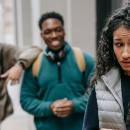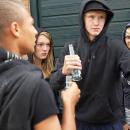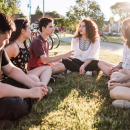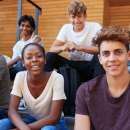
Alcohol & safer drinking
Every year, young people drink less alcohol. But for some, drinking heavily and getting drunk is still a risk

Every year, young people drink less alcohol. But for some, drinking heavily and getting drunk is still a risk

Making choices about post-16 learning including A-levels is an exciting time with lots of interesting choices

If you or someone you know is having difficulties with bullying, you can take action

If you are having a difficult time with friends, doing things to help yourself feel better can really help.

Why are some people bullied, while others bully?

Cannabis is illegal in the UK and evidence shows it may be particularly risky for young people

Figuring out what you want to do for work can be confusing, here are resources to help you explore your options

Every young person in Oxfordshire has the right to information and guidance about learning and career choices

Continuing with education after GCSEs is a popular choice, with lots of different ways to learn

Using digital devices and mobile phones to hurt, annoy or harass people is bullying. Learn how to use digital devices safely and supportively.

When young people with disabilities start work, training, or take part in work experience, their rights are protected

Children and young people in Oxfordshire can get help if there are issues with drugs or substance use

Worried about gangs? You can find information, help and sources of support here.

With an apprenticeship you can earn money, gain qualifications, and start your career fast

New drug-like substances are sometimes known as ‘legal highs.' But they are illegal and have serious health risks. People who buy and sell 'legal highs' are breaking the law.

Every year some students decide to leave their school and go to college for their post-16 learning.

Left post-16 education early? Here's what you need to do:

Results day can feel like an anxious time. But even if your results are not what you hoped you can still find a great place to study

Children must stay in education, training and learning until age 18. This can be at school, college, or (after age 16) in a job with training, like an apprenticeship.

Self harm: spotting the signs, identifying risks and helping someone at risk